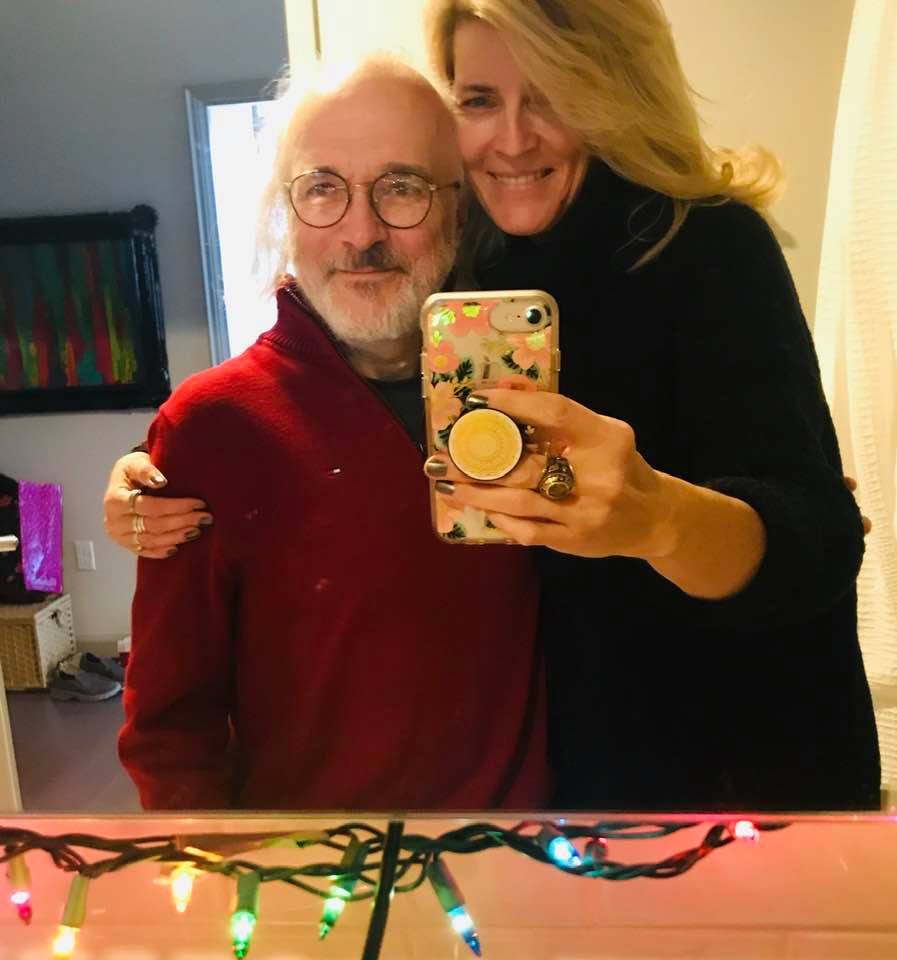SCHOOL COMMITTEE RECALL IN SF SEND SHOCKWAVES; WHY CAN’T IT HAPPEN IN PITTSFIELD? ANY TAKERS?
BY DAN VALENTI
PLANET VALENTI NEWS AND COMMENTARY
(FORTRESS OF SOLITUDE, THE WEEKEND EDITION FEB. 18-20, 2022) — The City of Pittsfield has recall provisions in its incorporating documents. Keep that in mind.
You have have heard the recent developments in San Francisco, arguable the most loon-let city in the country. Voters there got fed up with the local school board for its absurd emphasis on “racial justice.” The chalk that broke the blackboard’s back came when the board tried to rename 44 schools there. Apparently, the woke idiots on the school board had been losing sleep over names of schools that, they said, could be traced racism, sexism, or some other phantom “injustice.”
That was enough for two frustrated parents to start a recall petition.
The effort caught fire — a wildfire.
The blaze wasn’t put out until three school board members were recalled and summarily booted out of office.
This wasn’t any action by The Suits, the SF Big Shots, or the Special Interest. This was SF Mary Jane and Joe Kapanski telling the woke-sters, “Enough already. Yer outta here.”
Can you imagine the mood of the voters come November and the mid-term election?
———- ooo ———-
If it can happen in SF, it can happen in Pittsfield.
To go into the sins of Pittsfield’s School Committee would take forever. They are legion. Generally, kids and schools are failing. Education isn’t happening. Specifically, allow THE PLANET to go back to Feb. 1, meeting 3, of the Pittsfield Public School Equity Task Force (PPSETF).
Yes, God help us, such a social engineering and brainwashing outfit exists.
Before the Feb. 3 meeting, the PPSETF established four priorities.
From a document obtained by THE PLANET related to the Feb. 1 meeting:
- “All students are provided with ample opportunities to think critically about bias, power, and privilege, consider diverse perspectives, and develop leadership skills.
- “The district has clear and comprehensive systems for employee recruitment, retention, and promotiuon that value and promote diversity, equity, and inclusion.”
Stop us if you’ve heard this one before. And as an aside, THE PLANET suggest that all future references to “diversity, equity, and inclusion” be referred to as “diversity, inclusion, and equity.” The acronym will then be more fitting: DIE. The loons are, after all, killing public education. Now continuing with the purloined document:
- “Leadership and staff are engaged in multiple learning opportunities focused on culturally responsive pedagogy.”
- “All students have access to high-quality learning opportunities in school activities, after-school activities, and extracurricular activities.”
So why did the eggheads meet on Feb 1. Again, from the crib sheet”
- “Continue to build relationships with members of the Task Force
- “Identify working groups to develop action plans for [the] selected four [p]riorities that were chosen by the Equity Task Force.
- “Reflect on Preferred State and Characteristics of the identified Priorities” [Don’t you low those self-important looking capital letters?!]
THE PLANET knows you want names. THE PLANET has names. The PPSETF DIEhards attending “meeting 3” were:
- Hope “Is Lost”Aguilera, PHS staffer
- Michelle “Goodbye” Bienvenue, PHS staffer
- Matt “His Excellency” Bishop, PHS staffer
- Ryan “Horse and” Buggy, from Mercer HQ
- Ann Marie “If I Were A” Carpenter, Mercer HQ
- Jumpin’ Joe Curtiss, superintendent
- Justin “Case” Kie-Burdick, Elementary staffer
- Joseph “The Man Who Would Be” King, PHS staffer
- Howard “I’m Not Herman” Marshall, Mercer
- Roberta Mucolloch-“Don’ts and” Dews, Mayor’s secretary
- Allison “Biker” McGee, school committee
- Marisa Mendonsa, deputy assistant associate auxiliary adjunct sort-of superintendent (couldn’t think of a cute nickname; our appy polly loggies, Marisa)
THE PLANET hopes these good folks are TOO embarrassed to be names as culprits.
The Pittsfield School Committee has the following members:
- Bill “Smile You’re On Candid” Cameron, chair
- Dan “No Bias” Elias, vice chair
- “The Lovely” Linda Tyer, mayor (ex officio)
- Mark “Goodsen and Bill Todman” Brazeau (not many will get it)
- Sara “Aberration” Hathway
- Alison “Bike Lane” McGee (her again?)
- Vicky “Trade and Mark” Smith
Now, who among you out there wants to start a recall effort? The time is ripe. THE PLANET pledges financial support.
———- ooo ———-
With all that, let us present the astounding SF story. It’s better than “Rice-A-Roni, the San Francisco Treat.”

San Francisco recalls school board members seen as too focused on racial justice
Voters in San Francisco overwhelmingly ousted three school board members from their positions Tuesday, fueled by a failure to reopen schools last year and unpopular moves aimed at advancing racial justice.
The recall election is the latest signal that voters, even in a liberal city like San Francisco, have grown frustrated with public schools during the pandemic. Education, particularly its struggles with coronavirus measures and racial justice, is expected to play a prominent role in elections across the country later this year. The results in San Francisco offer another warning sign for Democrats.















Pittsfield has Level 5 inner-city public schools. Pittsfield, similar to many distressed and economically unequal cities, is systemically underfunded by state lawmakers in Boston. Remember that it is the state government that administers federal funding for public education, but Beacon Hill lawmakers love to play financial shell games with their federal funds. Over 650 Pittsfield children opt out of Pittsfield public schools every academic year, which costs Pittsfield millions of dollars in lost state education dollars. The state teacher’s union is very powerful in Pittsfield, and a lot of the public-school funding goes to teachers’ contracts. There is no correlation between public school funding and academic results, which means that politics is more important than educating Pittsfield’s public-school students. Pittsfield, similar to many distressed and economically unequal cities, is known for its high teen pregnancy rates and welfare caseloads. Girls as young as 14 have babies in Pittsfield. Today’s modern families are dysfunctional with many broken homes with parents’ who are mentally ill and/or abusing alcohol and/or drugs. Domestic violence and/or poverty negatively impact many poor families’ children’s ability to perform well in public schools. Many children never have a fair shot at attaining an adequate or above public education. In Pittsfield, Allendale Elementary School abuts Hill 78, which is a capped toxic waste dump filled with GE’s industrial chemicals called PCBs, which not only cause cancer, but they also cause LEARNING DISABILITIES in children. That is INSANE! In terms of municipal finance, Pittsfield Public Schools bring in around $30 million per year from state administered federal funds. Most of that money doesn’t really go to educating Pittsfield’s youth, but rather it is really a CASH COW for Pittsfield politics. In closing, Pittsfield’s failing public schools are really a failure on many levels of government and politics whereby none of the career politicians care about the most vulnerable people in our society: The disadvantaged youth.
Getting close to your record -21
Jon hit 31 a couple weeks back. Dan asked him to keep his posts concise and on topic.
JM posted a “Patrick Fennel letter,” two or three hours after Dan’s request. So Jon truly “earned” those 31 down votes.
I felt bad for him at first when I read his posts at the very beginning of me coming to the Planet.I thought they really gave him the business when he lived here and believed pretty much what he said in his posts. I know now after reading his copy and pasted posts he asked for and deserved what he got from the people he attacked here and elsewhere.Here in Pittsfield he played the victim card and is still playing the victim card from NH.
I see you have walked in my shoes. I never said that I always play the victim card, but I see you put words in my mouth, too.
That’s ok flip flopper at least your not as disliked as the Stooge.
I am unable to comprehend the extreme lengths people are going to achieve “racial justice”. Tearing down statues, renaming everything, abolishing punishment for many criminals.
It seems too insane to be being done by logical educated people. It throws the baby out with the bath water. It seems like many on the republican side have been radicalized in one direction and many on the democratic side have been radicalized in another direction. And both extremes are tearing America apart. Could Putin be playing both sides against the middle?
Either way, the Democratic party is in the process of dissolving itself. What happened in San Francisco is the canary in the coal mine for Democrats and if they do not do an immediate about face, they may lose every election in the country going forward. Their “cure” for social injustice is worse than the problem itself and people are seeing that. I hope people like Andrea get together in a back room and rethink their movement.
I am a registered Independent but voted for Biden for obvious reasons. And it is not likely that I would vote republican too often though I very well could. But it is very likely I may not vote at all if this social justice insanity is the foundation for the democratic party.
Fizz,
If only politicians did about faces on issues because they sincerely see they are not working rather than doing an about face based solely on their polling numbers.
Fuzzy Fizzle from reading what you write on the Planet you are woke left. Maybe you like the delusion of being an independent but your writing exhibits a brainwashed looney limousine liberal belief. As the saying goes the definition of insanity is keep doing the same thing over and over thinking the results will change. This area has been royal blue for 60 years and you yourself comment on how bad it is in the Pitts.
I am going to consider the source of your comment, raise my eyebrows, chuckle a bit and move on.
Theose white supremist human traffickers statues are being removed by voting on in in those town that remove the hero worship of human ownership.Its immoral to display these symbols in public.
Dan an excellent column today.
Yes it can happen here, and should happen here, as traditional teaching has long since been abandoned in lieu of social justice brainwashing, inclusion policies and no-child-left-behind crap.
DIE – so appropriate!
Just a correction – Matt Bishop used to be PHS principal, now Taconic principal.
LENNY
Thanks. I’m not sure if it can happen in Pittsfield, being that the electorate is so (a) brainwashed (b) part of the special interests (c) full of apathy (d) to busy trying to keep solvent and (e) too beaten down and downtrodden. As for Bishop, I went by what the document said. You mean to say Pittsfield can’t even get THAT right?
Dan good article but I don’t see it happening in our beloved city. As was reported in the news yesterday MA is the longest devotees to the looney left agenda. They found us to be even farther gone than CA. In looking at voting maps and how places voted Berkshire County was the deepest blue of any geographic area. What does this mean? Our kids and schools are screwed.
Best the parents can do is to school choice your kids to neighboring towns or hire tutors for their kids who can keep them on track with the rest of the country and world
If it doesn’t happen here, it’s because the rot goes so deep. The brainwashing of Marxism started early here as so many in this area were the first in the country to fall down the far left rabbit hole and have yet to emerge to breathe the fresh air of reality and truth.
And bring back civics as a curriculum.
Yes. Civics, home economics, and a course in finance/how money works. To your point, JF, all of this hooey on DEI in the school is robbing kids of an education, which boils down the the Three Rs.
Heartedly agree. Does anyone graduating a Pittsfield school realize they even have a city government in which they can participate? Make that, “should be able to participate.”
Linda Tyler “we’re well aware of your concerns” to families whose nursing home is being descended on by the national guard. How nice.
Joe Xiden and the democRATS rode the “white man is the boogey man,” all the way through the elections. George Floyd was a gift to the democRATS. They celebrated a multiple felon, like he was MLK himself. I’ve never quite understood this.
The black race has been afforded jobs, promotional opportunities, advancement, easier college/medical school/law school admissions, since the early days of the 1990’s, under Bill Clinton. When does it end? And when does the black community stand up and take pride and want advancement on their own merits? No other race is like this.
The bottom line in all of this, is the black culture itself. I know nobody likes to talk about it, because it’s taboo. When an overwhelmingly large majority of a particular culture, embraces and accepts: drug dealing/fast money, gang life/violence, attaining celebrity/pro athlete status, and other largely unobtainable or a unsustainable life goal, it’s a recipe for disaster. In the same token, those black males and females, who excel in school, are often ridiculed and called YT, by other black males/females. Making excuses or pandering to the black race, by creating foolish and unneeded positions like DIE, only continues to make things worse.
It even hit home locally, as dim wits DA Wrong Way Andrea Harrington, Helen “Handgun” Moon, and Jon Melle, continue to promote the “white man is bad” and/or “Trump is a Nazi,” nonsense with zero proof.
DA Wrong Way, the proof is in the pudding. A white man gets 2 years in jail for burning hale bails that promoted Xiden/Harris. DA Harrington just lost a slam dunk gun/drug possession case. The defendant, you guessed it, was a black male. Not to mention DA Wrong Way giving a free pass to the black female at Simon Rock College, who created a fake racial kidnapping/assault hoax. This not only created undue and unneeded stress, but wasted tens of thousands of tax-payer dollars, in state police resources.
Not to mention, Andrea loves to tout how she “fights for victims.” Wasn’t every white male in the school a victim? Where was your tough, aggressive, fighting attitude, then Andrea? Oh yeah, they were the white men, i.e.-the “boogey man.” You run to the hills from them.
Then there is Helen “Handgun” Moon. An Asian woman who grew up in middle-class, believed the “boogey man” theory so much, she even posted on social media a lie about two white Boston Policemen pulling her over for….you guessed it, being a POC and removing her at gunpoint. Helen even furthered the tale, by stating how she was arrested and thrown in jail for a few days, only to be released days later when the paperwork was missing. She immediately got called out and quickly deleted the post. Helen wasn’t smart enough to realize that there is a paper trail in the criminal justice system for all arrests. If she was arrested, a case number would have been created to document the stop/arrest.
What did she do then? She wanted to defund the Pittsfield Police. Why, when violent crime, drug dealing, and overdoses, are on a historic rise in Pittsfield? It simply fit a political agenda that is blowing up in the parts of the country who foolishly did “defund the police.” Gun violence is out of control in democRAT run cities. Again, it speaks volumes to her level of intelligence and awareness of situations, like the one currently in Pittsfield.
Jon Melle, nothing more needs to be said. JM’s posts speak for themselves.
Actually, my vote for Biden had nothing to do with George Floyd or white bogey men. I was going to vote for anyone with a pulse to get rid of Donald Trump and I would do it again. I would have voted for Richard Nixon if he was running against Trump.
I want to thank you for that vote, especially when I go to the grocery store and gas pumps.
The mean tweets really bothered that much Fizz?
Yeah, Trump’s rampaging incompetence and criminality had nothing to do with it.
Once again you are wrong. Like you have been for years
Orange man bad. Don’t care about policies Orange man bad. Elect Total jack ass. Orange man bad. Elect Brandon.
Policies? Where’s that wall? Where’s Trump’s infrastructure plan?
Oh yeah. Nowhere.
Trump said the pandemic would be over in April 2020.
Anyone who voted for that fool should never vote again.
The pandemic is over and if it was 50 years ago the pandemic would have ended 2 weeks after it started. Great progress on wall
Stop being so uninformed.
There is no progress on the wall, unless you count Bannon stealing money from Trump’s sheeple.
A cheaper better healthcare plan.
I think you guys like Trump playboy image.You all wanted to be Don
You’re saying Trump was mad, because Hillary Clinton, FBI, and other government agencies, were ILLEGALLY spying on a sitting President.
Can you blame him? Imagine if Hillary had won and Trump had spied on her Presidency? People like Helen “Handgun” Moon would need heavy doses of anxiety and anti-depressant meds, because she’d be so unraveled to hear a YT male did that.
Probably just like you too. Are you still proud of that vote Bleak?
Your name speaks volumes on the state our country is in under Xiden/Harris.
Actually it was the “idiot” tweets.
National Archives acknowledges classified documents were found in boxes at Mar-a-Lago after Trump left office
You nice folk can not handle the truth. You will not believe that which is right in front of your face. So sad.
Fizz, stop for a second and ask yourself, why is MSM covering this, when the Clinton Crime Network was spying on a sitting President?
Spying on a sitting president is espionage. Doesn’t that concern you?
And are you aware, an ex-President is still entitled to classified information?
If you can honestly come on here and tell us Barry doesn’t have his slimy paws on top-secret info, then I’ve got land in NH, next to Jon Melle, for sale for you.
No don’t send a liberal to NH, they are the only New England state that still believes in common discourse and discussions on the issues of the day
How much money do you send to Trump every week? He luv luv luvs ya Markus.
Pennsylvania finding a lot of irregularities in the 2020 election, so who is sad and can’t find what is right in front of them?
Pulse? But we still don’t even have a doctor’s report proving Biden is even alive. He’s sporting that zombied look of an octogenarian 40+ year term senator kept alive on hard drugs, medications, and electro-shock therapy. He’ll likely wind up in freakish mausoleum as did Lenin and Stalin.
Your search goes on, my friend.
He is an older man and looks it. That is true of most older men as I recall. On the other hand, he is half the weight of Trump and probably does not have the cardiac and diabetic issues Trump is suffering with.
Fizz Bumbles has the mental capacity of a Nat. He reminds me of Jim from Taxi. Not to mention his 48 years of corruption and do nothing political career.
No, he carries himself as a reanimated zombie. My hand instinctively grabs an indigenous zombie-splattered club by the couch each he swings 180 degrees to stumble out of view. Only a fool dismisses his instincts.
It’s the ancient knowledge gained from eons of evolution that tells us that he’s been embalmed, Fizz.
Old men speak slowly and briefly; they dispense knowledge in a condensed form. Listen hard and think hard about what an aged man says. Even at 97, there is often confusion but also deep truth. But this marvel only happens if the old man gained wisdom during his life, that is, accomplished meritorious accomplishments. Thinking hard when you are young is the essential practice for the hard fight which awaits everyone in old age. (Trying to hire others to plan and execute crimes which require deep thought is not–so-much practice. That behavior is also plagiarism which infuriates the public and does not educate the perpetrator.)
Did you know that those videos from the ‘oval office’ are actually green screened? Teleprompters are not installed in the real one. So, there’s no evidence that the corpse even inhabits that chamber either.
The search for a pulse never abates! It’s a noble one, and you have my regards.
Anyone who thinks that Biden’s Oval Office addresses are green screened is a Grade A buffoon.
They are. They even showed this on cnn. Geez wake up
Citation.
Biden can’t use the Oval Office because Obama is holed up in it.
42.4 % of all Americans are Obese. I don’t think 42.4% of Americans are suffering from dementia.
I guarantee you you any qualified physician would say Trump was obese and even well past obese. And that is not even taking into consideration the fat in his head.
A little to late?
https://pjmedia.com/news-and-politics/matt-margolis/2022/02/18/even-some-democrats-want-biden-to-
take-a-cognitive-test-n1560141
So now we have a real dictator in office in the White House. He supports the Hitler type tactics being used by Trudeau in Canada who now wants to take pets and children away from these protesters. Protesting was good for the far left when buildings were burning down like they were during the Summer of Love 2020, but not when protesters come out against the tyrannical governments that the far left supports.
And if Richard Nixon was not available I would do a write in for Barney Fife even if he was dead and buried.
<SIGH>
At least BF would have been nicer.
Why was Trump so nice to Putin and would Putin be invading Ukraine today if Trump did not mollycoddle him?
That was the plan.Now it’s the distraction away from all the crimes of Trump mafia
Actually Putin was afraid of Trump but now Putin sees a weak old man whose son was corrupted over in Moscow. This is childhood games for Putin. Don’t forget he led the KGB so I am sure he knows all the Biden’s dirty deeds.
The Planet does not realize that Trump was recruited by Bannon to destroy all the political gains of women and minorities and to do that he must tear down the institutions that the American people trust.Half of the Trumps believe in the deconstruction and the other half are being used for their ignorance
I respect you and your honorable military service, which I am thankful for. Just for the record, I am saddened by Pittsfield’s violent crime and distressed and very economically unequal economy. I denounce cultural conflict and violence. Instead of blaming progressive women politicians, the proverbial Jon Melle, and black people, I hope that we will all work together for a bright future. There is nothing we can do about the past but learn from our mistakes. Pittsfield still has hope for the future!
If you are a victim as you always claim, how is it you get to tell others what they should do?
MARK
Excellent analysis. I am struck by this quote: “When does it end? And when does the black community stand up and take pride and want advancement on their own merits? No other race is like this.” You just stated the message of Malcolm X, the most equitable and just man in the entire civil rights movement. A true hero. Malcolm laid it right on his own race. Don’t wait for whitey. Better yourself. Now. The ticket, he preached, was education. Of course, he, like MLK, was delivering a message that was too dangerous for certain protected interests. In Malcolm’s case, it was the stormtroopers of the Hon. Elijah Muhammed, the man Malcolm called out and exposed.
What about all of the white power (trash) hate and terrorist groups throughout the U.S.A.? Why are they engaging in cultural conflicts and violence in the year of 2022?
There are 3 kinds of conflict/violence:
1 – Interpersonal conflicts/violence: Verbal and/or Physical Assaults
2- Structural conflicts/violence: Homelessness, Joblessness, Poverty
3 – Cultural conflicts/violence (Divide & Conquer): People(s) and/or groups believe they are superior to People(s) and/or groups they deem inferior to them.
The first two kinds of conflict/violence can be stopped, but the third one cannot be stopped because humankind is full of ignorant human beings who act with conflict/violence against their fellow human beings.
The point historic men such as Jesus Christ, Gandi, MLK, and even Malcolm X all made was that instead of engaging in conflict/violence, we should be practicing the Golden Rule to achieve peace and justice for ALL.
Divide & Conquer tactics have been used by empires for thousands of years of human history. When a Conqueror gets People(s) and/or groups into conflict/violence whereby they fight each other for power, then the Conqueror always wins the war instead of the battles his or her subjects are fighting each other over. During MLK’s Civil Rights political movement in the 1950s and the 1960s, MLK understood that if he used cultural conflicts/violence, he would have lost his Dream for racial equality in the U.S.A.
Lastly, it was easier for someone such as Hitler to have blamed the Jewish People for Germany’s defeat in WWI so that he could deploy his cultural conflicts/violence to attain dictatorial powers than if he led by uniting all of the people and Peoples of Germany for peace and prosperity. Please STOP blaming Linda Tyer, Andrea Harrington, the proverbial Jon Melle, and the black people for Pittsfield’s socioeconomic problems. Instead, please work with all of these people and groups to bring back hope for a bright future for Pittsfield.
Jon Melle
I don’t blame them. I blame Gerry Doyle and Lee Iacocca.
Jon you need some pepto.
Actually there is another conflict you didn’t mention. Made up conflicts that come from the progressives, hustlers and activists. They love making up conflicts or creating issues of some kind that didn’t exist to begin with so they can supposedly solve them for the people at some cost.
It’s white liberals who gin up hate
Gin up hate? Have you ever watched Tucker Carlson? He may not have invented hate but sure has brought it to a new level.
Look what happened to Cosby. Once he started to tell black people to work hard, have personal responsibility and create nuclear families, he went from the top of the food chain to the bottom real fast. Of course they waited until he was demented, but it was clear, don’t say blacks have to be responsible for themselves, it’s the white mans fault
and once he was found guilty of drugging and raping woman?
As was stated they waited until he could not defend himself. If this happened (I wasn’t there so I don’t know what really happened) it sounds like everyone at the Playboy Mansion was doing it, so where is their court date? Why only the Cos? Try to pull back the covers to see why things happen. Even over in NY the first person to attack Cuomo was a person who did a similar thing in college only to be found it was a lie. These are crazy times Fizzle and unfortunately we don’t have the investigative reporter’s we use to have, people just push headlines without substance.
Most comments about race from whitey Prove how uninformed Trumpers are about America’s history and you just want it to go away.
Spot on, Markus. I agree 100%
I knew you would, Mr. Fritz/Mr. Predictable!
Remember that famous saying by former City Councilor Nichols. Do we Need It or Do we want it.
Only two years for cop shooting victim. Wow,keep that lawyer in mind.
Would love for someone on the School Committee to suggest shutting some schools and streamlining the administration! It would also be nice for them to go back to the basics in education and of course make all kids stay in the school building during school hours
https://www.wwlp.com/news/local-news/these-are-the-least-educated-counties-in-massachusetts/?fbclid=IwAR2iUl8BRqES1snvy1s4cKEEx3B53HhIxHDqB37PmVrik_scBj8hwUbcB-s
Pittsfield schools rated poorly AGAIN.
Agree 100% Pittsfield public School Committee needs a change, Also think the Berkshire Eagle needs to wake up. In a article describing the passage of legislation granting illegal aliens driving licenses, they worded it migrants or undocumented. Nice spin, put still illegal under the law of the United States. Illegals should all get a bus ticket back home. Our Country needs legal immigration. We need to know who’s coming into our Country. Thank god canceled that rag long ago.
Would like to commend Mayor Tyrant, Vinny Barborotta and the Berkshire Eagle on the front page fluff political article on filling the potholes and craters on the roads of Potsfield. Wonder if the Mayor paid the BB to print this? What a great PR stunt, guess what Mayor, it did NOT work, the taxpayers are NOT stupid. Most of the holes they filled have already washed out, Meanwhile, the main streets are terrible, even the Mayor’s vibrant North Street is getting bad, Many side streets are almost impassible. Just think of the money being wasted while the trio of Linda Tyrant, Deanna Ruffer and Gina Armstrong decide how to waste millions that could be used for this crumbling city.
In that same article they quoted a woman who recently move to Pittsfield and bought a town house. Says she has lived many places and never seen such horrible roads. Most mayors would have been embarrassed but ours probably had a glass of wine and said “fick em” “fick em all”.
Gee, using the same technique on the pedophiles….
https://www.thegatewaypundit.com/2022/02/jeffrey-epsteins-close-friend-modeling-agent-jean-luc-brunel-found-dead-apparent-prison-suicide-allegedly-hung-prison-cameras-not-working-time/
One of the mandates of the woke and hopefully soon to be gone forever “progressive prosecutors” is to search for cases that can be overturned based on perceived racism. Look for a local attempt to free a murderer. You read it here first.
Size 10.5 boots & the box they came in – gtfoh.
If the glove don’t fit you must …. fabricate.
Did you know: the Soros funded Innocence Project was founded by OJ dream team scum bag lawyer Barry Schenk? Just another progressive hero.
So you dont want the innocent freed because it exposes justice
Canadians protesting their government are being trampled by horses. Silence from the Biden White House since the globalists are all in on this and will not condemn any methods used to protect tyrannical governments from the peasants. Everything from freezing their bank accounts to threatening their pets and children have been used against the protesters. One store owner who gave $250.00 for gas money to a trucker to keep him warm for the night, has been branded a terrorist and harassed. Quiet little Canada is turning into a dictatorship under globalist Justin Trudeau.
https://torontosun.com/news/local-news/warmington-police-horses-trample-demonstrators-at-freedom-convoy-protest-in-ottawa
This from Trudeau who took a knee with the summer of love activist’s who destroyed everything in their paths with no reaction or consequences from the government in Canaduh.
These people are dangerous and power mad. Remember all the screaming from the far left like AOC when it looked like horses were being used to trample or chase the illegal immigrants coming over our border? This is still going on and lawsuits are pending. The agents were fired or put on unpaid leave. This is why the current silence from what is happening to our neighbors in the north is so hypocritical and politically motivated. They approve of what Trudeau is doing since this is the type of oppressive government they envision for this country and across the world.
Dangerous and power mad? You must be talking about the thousands of people with red hats storming the capitol on Jan 6th right Pat? Or did tucker tell you that was not real?
Thousands of people? LOL. You must be a good friend of Corn Pop.
How many have been charged with (1) espionage, and/or (2) attempting to overthrow the government, again Fizz?
Don’t worry, around January 2023, when the R’s control Washington, you’ll see the true story on this.
Notice AOC has piped down on this? Where was she that day? What do her emails say? Did she, or other members of the progressive caucus, have a part in this? Trump loved America.
Omar, AOC, Tlaib, Jayapal, Pressley, all hate America. They’d love nothing more than an overthrow of the YT government.
Funny, when Tucker Carlson called AOC out for being “an entitled, rich white woman,” AOC called Tucker a sexist, claiming she was a woman “of color.” Switch to the two teens who were fighting in a NJ mall. The cops get there and break it up. They slam the “white” kid down on a couch. He doesn’t resist. They have to wrestle the black kid to the gorund and cuff him because he resisted. Now, there’s an uproar. The lib-loons say they gave the “white” boy privilege because of skin color. Well, turns out, the “white” boy is Latino. So why, AOC, is he not granted “of color” status. Is it because you are once again milking the victim card?
I’ll have to check that out Dan.
Black on black violence is out of control. You hear nothing about this from our “Progressive Warriors.”
A police officer, during the course of his/her job, has to fight, wrestle, arrest, and sometimes use deadly force against a POC, the Progressives come frothing at the mouth for the police.
There is a reason the police are taught defensive tactics (hand to hand combat) in the police academy, some people will fight with the police. They have to be able to defend yourself.
And for the Wrong Way Harrington’s or Handgun Moon’s, of the world, tell me how you handled a combative person without using force. I’m all ears? In fact, tell me the last time you handled a combative person?
Realistic post. Even a blind squirrel will stumble upon an acorn if it scurries about long enough.
An interesting story came out about the supposed pipe bombast the DNC on 1/6.I guess the Secret Service swept the DNC because Kamala was there on 1/6 (which was strange for another reason). The secret service didn’t find the pipe bomb that was supposed to be dropped the night before on a bench in clear view! So was there really a pipe bomb? And the person who “found” the bomb was a swamp creature!
Putin is trying to take down western democracy and he’s using ignorant fools to do it.
I do remember her going bonkers about that. She is currently one of the biggest hypocritical people in leadership and there are many of them.
Trudeau definitely turned Canada into CanaDUH.
I wunner how you are going to feel when those trucks clog America roads and you cannot get food or toilet paper. Or are you looking forward to it?
Golly. So much for the ‘blood of patriots.’ Now it’s about kleenex and avocadoes. Don’t get me wrong – I feel you are a fine person. I take issue just with your conclusions.
er what?
There’s no such word as “avocadoes,” Mr. Quayle. Even Biden knows that.
Oh look it’s the thieving spelling police
This from the guy who thinks a cabal of Satanists secretly runs the government.
More lies from you. State where I ever said that. Oh yea never have
You believe in the silly Q-Anon conspiracy.
And where did I state that Matt ?
“This from the guy who thinks a cabal of Satanists secretly runs the government.”
Coded anti-semitism. I call you out.
Hardly. HT and his other moniker “Sean Sullivan” are adherents to the spectacularly idiotic Q-Anon conspiracy.
You are not too far behind with your cryptic references to “money transfers.”
Tell us, is there some secret source of the truth of all things Biden, Obama, and the Clintons that you have some sort of access to that the rest of us do not?
Matt grab a clue.
You are right. BH is a total anti semite.
Noted. You better start hoarding, fizz & bh.
We are afraid that they set up bouncy houses for the kids and you and TSC show up.
This has already been happening under Joe Biden for a year now and more shortages to come since people don’t want to work when they can live off of big government.
You must be talking about Ted Cruz.
Just to switch gears a bit, I just heard on the news (ABC), that if Russia invades Ukraine, it could have gas prices soaring to $7 a gallon, by the end of Xiden’s presidency.
With everything going on in the US and the world, Xiden and Harris believe the biggest threat to America is white supremacy.
For everyone on this site that voted for Joe Xiden, I offer you a big “Thank You” and a big “F**k You.”
Ditto.
Can’t wait for O’Biden’s term to end, and hopefully our Republic can survive the four years of destructive policies.
The globalists, and Biden is one of the biggest globalists, will exploit the situation in Ukraine just as they have exploited the pandemic and the weather to squeeze control over people across the world. It’s no coincidence that Canadian Dictator Trudeau has been using the term “Build Back Better” continually to show his support with these globalist fascists and now Canada is treating their citizens with so many human rights violations that it’s unbelievable.
Here is the salute.Copied the salute from awhile ago from a poster on here I have had to use it a few times now.
……..…../´¯/)………… (\¯`\…
…………/….//……….. …\\….\…
………../….//………… ….\\….\…
…../´¯/…./´¯\../‘~| \\…|..\\…..\
.././…/…./…./.|_……_| .\….\…. \…\.\..(.(….(…(…./.)..).\….|..\….)….)….)… ) .\…………\\. .\
Well my sources at Mara Largo are saying there isn’t going to be ANY gas because Putin’s hackers are going to shut down our electric grid and the pumps will not work. Not sure how they would know down there but Putin and Trump were and apparently still are, pretty good friends.
Great letter to the editor in the BE today, titled “Mt. Greylock needs better approach to fighting inequality in the schools.” It appears that McCandless is proposing the hiring of a DEIB (diversity equity inclusion belonging) administrative director. (I prefer Dan’s acronym DIE). What a waste of taxpayer money, as the programs put in place are usually racist in nature!
The overweight over paid War Criminal can hire the two racist negro students who targeted a black child in a racist FUCK THE NIGGER Zoom BOMB Attack at school.
“Racist Zoom Bomb attack at Mt. Greylock HS targets College employees’ black child. Incident reignites broader concerns over racism in Williamstown. williamsrecord.com January 31, 2021
Before the identity of the RACISTS were known McCandless vowed that the RACIST CULPRITS WILL BE “HELD ACCOUNTABLE” “No matter the ‘who’ or the ‘where’ of this incident, the incident has served as a stark reminder that hate, fear, intimidation, and language that disrespects not only an individual but an entire people…are real,” McCandless wrote.
Previous incident of racism in Williamstown
“In October 2020, a Black staff member received at their home a violent and threatening hate letter targeting them on the basis of their race, gender identity, and sexual orientation.”
When it turned out that the RACIST FUCK THE NIGGER HS ZOOM BOMBING CULPRITS were in fact RACIST NEGROS, attacking one of their own, the WAR CRIMINAL …….
or McCandless can hire the deceitful racist negress female college student who fabricated racist hate crimes which included being knocked unconscious, dragged into the wood, and assaulted….by innocent white boogeymen.
Not one of you seem to have heard about the Ukraine situation. But you might be down the road.
Jean-Luc Brunel, the French modeling agent accused of procuring girls for Jeffrey Epstein, was found hanged in his Paris jail cell—in a shocking replay of how Epstein himself died.
Already posted this info, above, with website.
Did they check his buttocks for tattoos?
He was Epsteined! Will Maxwell be next???
School choice is another Republican racist law to surpress urban schools.Mayor Tyer has 1 job and 40 million dollars and that money is to fix or make new all environmental systems in the school buildings for healthy indoor environments….Take notice GREEN CITY…Are your schools getting healthy heat and cooling.The mayor should make this job one.Job 2 is close PHS IN 5 years because the interior environment is sick.Allendale must close for student health.Dr Cameron knows what’s under that building.
I’ll bet Jimmy Hoffa.
The number 1 threat to America is the militia terrorist who have stated many time they are going to overthrow the UNITED STATES GOVERMENT…Trump leads them and you support Trump……Im hearing FOX mainstream Russian propaganda TV has ordered Putin to attack the democracy of the Ukrainian GOVERMENT. Fox is now in charge of 2 wars on democracy.Sick political party supported by our next do neighbors all because white men are afraid of minorities and women.
Cuckoo
FOX news is a subsidiary of Russian Television.
Hillary, is this you?
This is what a public school education gets you today. The colleges have brainwashed all of these people to support Marxist/Globalist ideas. Anyone who speaks out against these ideas is a terrorist. They have no idea just how deep their brainwashing goes.
As Pete Arlos always pointed out that is was better to be uninformed than misinformed Pat….FOX/RUSSIA propaganda
Karl Marx lived in the 19th Century – only in Capitalist countries – when Slavery and Colonialism ruled the days of his life. Perhaps the 21st Century has the working class and underclass both being crushed by the elitist Globalist agenda? It doesn’t matter to the Global Elites if “Jon Melle” earns an at or near minimum wage income with underfunded benefits in the U.S.A., the U.K., France, or even bad boy Hunter Biden’s former business clients in China and Russia. Please note that the word Globalist really means “Evil Jews” in Trump speak. Therefore, I denounce the word Globalist for its discriminatory alternative meaning. I denounce the Trump-led White Nationalist political movement for its racism and anti-Semitism. I also understand that Joe Biden has a very long history of racism in his nearly 5-decade public record in the Swamp. I also understand that Hillary Clinton has a history of elitism and racism in Swamp politics, along with her delusional absolute loyalty to her pervert husband Bill Clinton. Lastly, a majority of the Founding Fathers owned Slaves and lived during a time when the Native American Tribes were systemically killed in genocides that claimed between 40 to 50 million innocent lives. It is all true, unfortunately!
Nu? Speaking for the Jews? Who asked you?
Recall the city council and mayor while yer at it.
The upcoming CC agenda is posted. Another two weeks have gone by, roads in Pittsfield are getting more dangerous by the day. Barbarotta’s fluff patching job failed. Once again there is not one elected City Councilor that has the courage to question the Mayor and Morales about the the terrible conditions of the roads. They also are neglecting to ask Kerwood what is being done with all the monies the City receives from Excise Taxes, where the money has been spent or how much still exist in the account? What are they afraid of? Are they being threatened if they ask a question? Or do they just not care? Basically this City Council has been totally useless since elected. Are we going to have another two years of a lack luster Council?
M&B
Correct. It is stunning that no one on the CC (when it should be the MAJORITY of them) has confronted the city about the two issues you mention: Roads and Monies. Don’t kow the answer to your question about threats. I would guess not. There’s no need for threats when you have a supermajority of compliance. Do they not care? There is probably some of that as well. More likely, it’s the type of person Pittsfield attracts for public office: someone who wants to “play ball.”
You forgot a few things about Pittsfield politics! 1 political (Dem.) party ran by an incestuous-like group of provincial insiders. It is “play ball” or face retribution. It is more about money, power and politics than it is about roads, public safety, public education, etc. If you are not part of all of these corrupt things, then you are only in the way. Please remember that I, Jon Melle, experienced all of it many years ago when my dad served as a Berkshire County Commissioner (1997 – mid-2000). Communicating with the hacks who run the show in Pittsfield politics is like looking into the Sun: blinding and painful!
Wow ! You experienced Pittsfield politicians retribution when your father was a member of the Berkshire county commission years ago? I don’t think the many many people who follow the Planet would have known this happened to you even though you post it just about every other post on here.
I guess it is the sad story of my life….
Well, if that’s the saddest thing to happen in your life you are keeping it going for whatever reason and the reason is only known to you. Move on! Stop being the one holding you back from doing so.
Before making judgments let’s give this new council a chance to get to work. With zoom meetings and just getting to in person meetings they are basically just getting started. That being said they should have their feet put to the fire because society and government is in total chaos. They need to create a vision and start working on improving this city. As you mentioned so far it doesn’t look good but things can change if people have the backbone and drive.